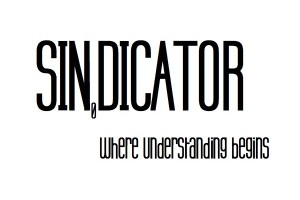Chairman Mao once said, “Without destruction there is not construction. The destruction is the criticism, the revolution. The destruction comes first, it of course brings the construction.” In recent years this quote has been taken literally, and the character 拆 (chāi), which means to “tear down,” adorns the entrances of many-a-doomed domiciles. The phenomenon has evolved so that the Chinese have nicknamed their country 拆那 (chāinà – get it?), referring to the daily razings that make way for growth.
This HULK SMASH!!!! approach to development has led to some stubborn residents refusing to give up their homes, “squatting” in nail houses that impede new construction. Those forced out leave messages telling others how they lost their homes. The graffiti protests are often painted over, silencing the affected.
Institutionalized Incentives
Land is owned by the state, with individuals and groups being able to lease the land for 70 years or less. Local and municipal governments leverage this asset by selling land leases to developers, leaving the residents with little say and little compensation. Developers get rich. Government officials get rich.
Moreover, this push for land development has been institutionalized by the central government in a series of incentives set by the Communist Party of China Organization Department. A long list of performance indicators gauge the efficacy of local party bosses, and GDP growth tops the list. The easiest way to hit that target? Why, land sales and infrastructure investment, of course!
In fact, these incentives have warped the construction sector to the point of projects of planned obsolescence. Poor materials, untrained workers and accelerated timelines have led to some shoddy construction, with the lifespan of many residential structures clocking in at 20 years. The logic behind such irresponsible development? Demolition to make way for construction looks better for the numbers than renovation. It’s doubtful Mao foresaw such capitalist implications when he espoused his theory on destruction and construction.
Bubble Glut, Bubble Bubble Bubble Glut
This has created a property glut of epic proportions. Land-rich areas with few tax-paying individuals depend on real estate leases to generate revenue. Thus, gargantuan development projects have sprung up where no one wants them, initially designed to boost growth and business tax revenue, but ultimately leading to a lot of waste and pollution. Ghost towns pepper the country to the tune of some 68 million empty units. Meanwhile in urban centers, skyrocketing rent prices and strict purchasing restrictions have caused a massive housing shortage. Groups known as “rat and ant tribes” live in a modern dystopia, sardined underground as a testament to the ugly imbalance of resources and development (Vice Japan does an awesome feature about them).
It’s the Economy, Stupid
China saw housing market downturns after 2008 and 2011, but 2014’s looking at a possible property bubble pop, splooging a mix of sticky self-pity and gooey regret everywhere. That would be bad — real bad — since real estate accounts for 15% of China’s GDP, and such a large sector of the world’s second largest economy deflated too quickly would mean the entire globe would get splooge all over it.
In response to ballooning government debt, developer funding shortages and falling home sales, Premiere Li Keqiang has enacted a few “micro-stimuli” measures to avoid a crash. The PRC is now regulating loans made to developers and using targeted measures to encourage home-buying of existing units. To come: structural reforms moving the economy from an investment-led growth model into a consumption-based one. China will hopefully grow out of its “chai na” phase, an anti-climatic maturing that would be way better than any alternative… SPLOOGE.
Further reading:
- Seriously, China File’s people are killin’ the infographic game.
- Many thanks to fellow Carletonian Austin Hall for letting me showcase his deft hands from the video “Daft Hands.”
- Shoutout to Shanghai’s Basement 6 for their creative destruction with Shanghai 拆’s.


















































I can’t deny these words are true.Since several developers made money a priority, goverment officials’corruptions and real estate in most cities of China is expensive.Much reconstruction work was shoddy.Real estate accounts for too much of China’s GDP.The fixation with growth is to blame for many of today’s problems.I think developers and officials are culpable.Some citizens’ speculation exacerbate the problem.I hope most people are socially responsible.This kind of behavior mentioned is a waste of social resources.
Under China’s stunning development speed and breathtaking GDP number,we can see so many disappointing truths. I strongly support the author’s statement. What China is doing with the real estate is not economy at all. Such economic bubble is flourishing and shining seen from the start. However, we can see some adverse clue from the current situation that houses are expensive but no buy.
The government is trying to turn the table in some extent. But with the enticing game set by predecessors and troublesome situation impossible to start over, anything seems to be useless until the market speaks for itself.